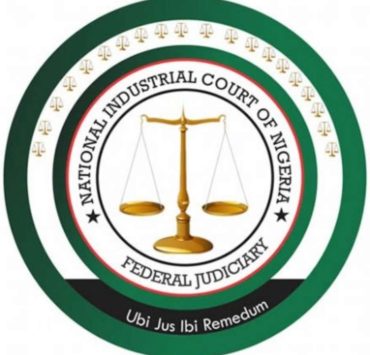The Status of AI Regulation in Nigeria – Laura Ebrusike and Nonso Anyasi

Lawyard is a legal media and services platform that provides…
The Artificial Intelligence (AI) revolution is transforming industries and communities globally, and Nigeria is no exception. The regulatory landscape of the industry is evolving rapidly even as the country seeks to harness the potential of AI for economic development and social progress. This essay highlights key developments, challenges, and future directions of AI regulation in Nigeria.
AI regulation in Nigeria brooks its provenance from the broader technological advancements and the growing recognition of AI’s transformative potential. The National Information Technology Development Agency (NITDA) has been at the forefront of discussions for a regulatory framework for AI.
In March 2020, NITDA released guidelines for managing personal data, which indirectly impacted AI by establishing a legal framework for data processing—critical for AI systems that rely on large datasets. In November of that same year, the National Centre for Artificial Intelligence and Robotics (NCAIR) was established. This initiative marked a significant commitment by the Nigerian government to embrace AI as a vital component of its digital economy strategy. The NCAIR was tasked with fostering research, innovation, and policy development related to AI, setting the stage for subsequent regulatory efforts.
In 2022, NITDA began seeking stakeholder contributions for a National Artificial Intelligence Policy (NAIP), portraying a commitment to developing a structured approach to AI governance. By March 2023, NITDA had completed the first draft of this policy, which aimed to provide a comprehensive framework for AI development and deployment across various sectors. It emphasized the need for ethical considerations, data protection, and alignment with international best practices alongside aligning AI utilization with national principles concerning human rights and democracy.
In August 2024, Nigeria unveiled its first National Artificial Intelligence Strategy (NAIS), developed collaboratively by NITDA, the Federal Ministry of Communications, Innovation, and Digital Economy (FMCIDE)- and the National Centre for Artificial Intelligence and Robotics (NCAIR). This strategy aims to harness AI for national development across the health, agriculture and educational sector among others. It pushes for infrastructural development as well as an expert group to guide the ethical implications of AI and inclusivity across different social segments.
Irrespective of these advancements, the NAIS is still in draft form and although it seems like a welcome development, still lacks detailed implementation timelines, funding sources and a sturdy foundation of existing AI regulations.
Currently, there are no specific laws in Nigeria that directly regulate AI; however, existing legal frameworks indirectly impact its deployment. For instance, the Nigeria Data Protection Act (NDPA 2023) serves as a foundational legal structure for data privacy, which is crucial for any AI system processing personal data. The NDPA provides that data subject’s now have the right to object to decisions made solely based on the automated processing of their personal data without any human intervention, if these decisions have a legal or other significant effect on them. Additionally, various sector-specific regulations govern areas where AI is applied, such as telecommunications services and financial services. Furthermore, the Nigerian Communication Commission Act 2023 regulates telecommunication services that may utilise AI technologies and the Security and Exchange Commission (SEC) Rules on Robo-Advisory Services regulates financial services that may utilise AI technologies.
NITDA is also actively involved in the struggle to provide a comprehensive framework for AI governance in Nigeria. It advocates for integrating AI into national security frameworks to enhance operational effectiveness. This approach aligns with NITDA’s Strategic Roadmap and Action Plan (SRAP 2.0), which prioritizes strategic partnerships to leverage technological advancements for national development. The agency emphasizes collaboration between various sectors, particularly between information and communication sectors.
Through initiatives like the establishment of the National Centre for Artificial Intelligence and Robotics (NCAIR), NITDA is committed to fostering ethical AI development. As highlighted in the NAIS, the agency is working on creating an AI Ethics Expert Group to guide ethical considerations in AI projects, ensuring that developments align with societal values and human rights principles. In addition, NITDA in 2023 revealed that they had started and were at the time drafting a Code of Practice for AI, which will establish standards for the responsible use of AI technologies like ChatGPT and others.
NITDA’s role in AI regulation encompasses policy development, fostering collaborations across sectors, promoting ethical practices, and integrating existing legal frameworks into a cohesive strategy for managing AI technologies in Nigeria. Through these efforts, NITDA aims to position Nigeria as a leader in ethical AI innovation while safeguarding public interests.
Fortunately, the Nigerian National Assembly has also expressed intentions to establish comprehensive legal frameworks governing AI adoption, reflecting an awareness of global advancements in this area.
Regardless of the seemingly promising future of AI in Nigeria, there are some setbacks and challenges faced in the pursuit for its regulation.
One of the primary challenges facing Nigeria’s regulatory landscape is the lacuna between policy formulation and implementation. Although the NAIS outlines ambitious goals for AI development, there is a pressing need for clear timelines and milestones to guide progress. Without these mechanisms, there is a risk that policies may remain theoretical rather than translating into actionable initiatives.
Another significant challenge is building the necessary capacity within regulatory bodies to effectively oversee AI technologies. The rapid pace of technological advancement often outstrips regulatory capabilities, leading to potential gaps in oversight. Training programs aimed at enhancing the skills of regulators in understanding complex AI systems are essential for effective governance.
Nigeria’s approach to AI regulation is not occurring in isolation; it is part of a broader global dialogue on responsible AI governance. In November 2023, Nigeria joined other nations in signing the Bletchley Declaration on AI, committing to international collaboration on ethical standards and risk mitigation strategies. This engagement highlights Nigeria’s recognition of the need for collective action in addressing global challenges posed by emerging technologies.
As Nigeria embraces AI technologies, ethical considerations surrounding bias, integrity, transparency, and accountability become increasingly important. The establishment of an ethical framework within the NAIS is a positive step; however, ensuring compliance with these standards across diverse sectors remains a challenge. Continuous engagement with stakeholders from various fields will be crucial in addressing these concerns.
Futuristically, as Nigeria continues to develop its AI regulatory framework, several key areas require attention. A few recommendations include the finalization of NAIS, as completing the NAIS with detailed implementation plans will be critical for translating policy into practice.
Another recommendation is the strengthening of data protection laws. This will be beneficial in the long run, as AI systems increasingly rely on vast amounts of data, enhancing existing data protection laws will be essential to safeguard citizens’ rights while fostering innovation by educating stakeholders about the implications of AI technologies responsible use of these technologies will be promoted and public trust fostered in these systems.
Lastly, increasing investment in research initiatives focused on ethical AI development will contribute to building a sustainable ecosystem that prioritizes societal well-being alongside technological advancement.
The status of AI regulation in Nigeria reflects both significant progress and ongoing challenges. With the establishment of frameworks like the NAIS, which is still in the works, and the NDPA, Nigeria has laid a foundation for responsible AI governance. However, addressing implementation gaps, building regulatory capacity, and ensuring ethical considerations are integrated into all aspects of AI deployment will be crucial for realizing the full potential of this transformative technology.
Laura Ebrusike is a recent law graduate with a keen interest in the intersection of technology and law. Particularly, data protection and privacy, tech law, and artificial intelligence. As an associate member of the Institute of Chartered Mediators and Conciliators, Laura brings a unique perspective to legal disputes in the cyber age. Her focus on emerging technologies and their legal implications demonstrates her commitment to addressing the complex challenges of our world as we know it.
Nonso Anyasi is a Doctoral Researcher on EU Data Protection Law and a Privacy Consultant.
Lawyard is a legal media and services platform that provides enlightenment and access to legal services to members of the public (individuals and businesses) while also availing lawyers of needed information on new trends and resources in various areas of practice.













